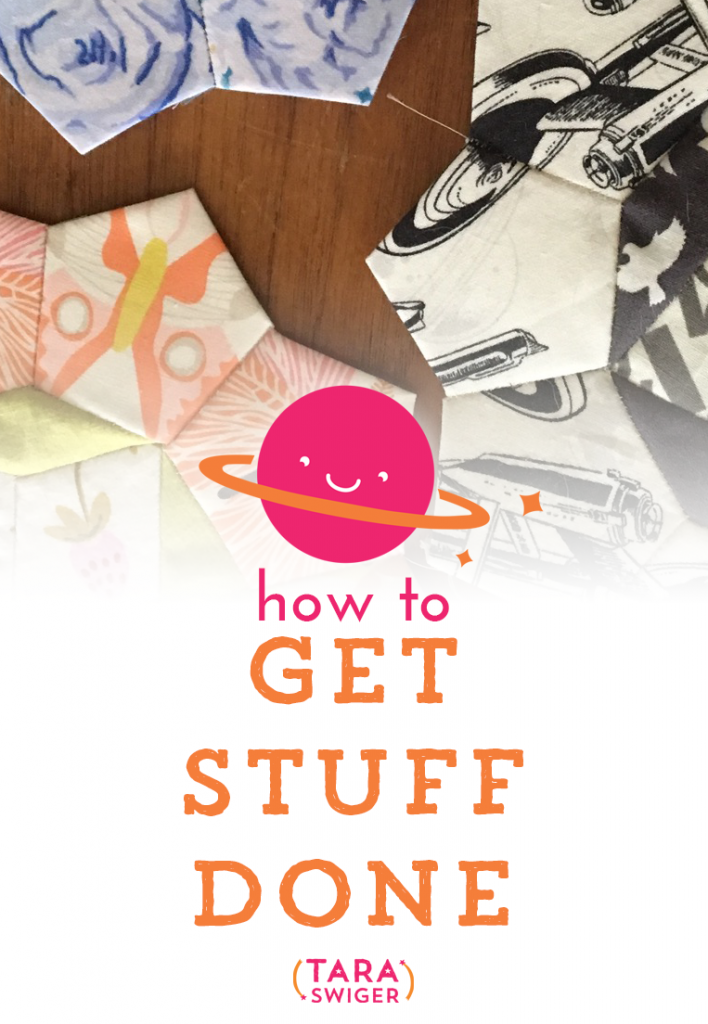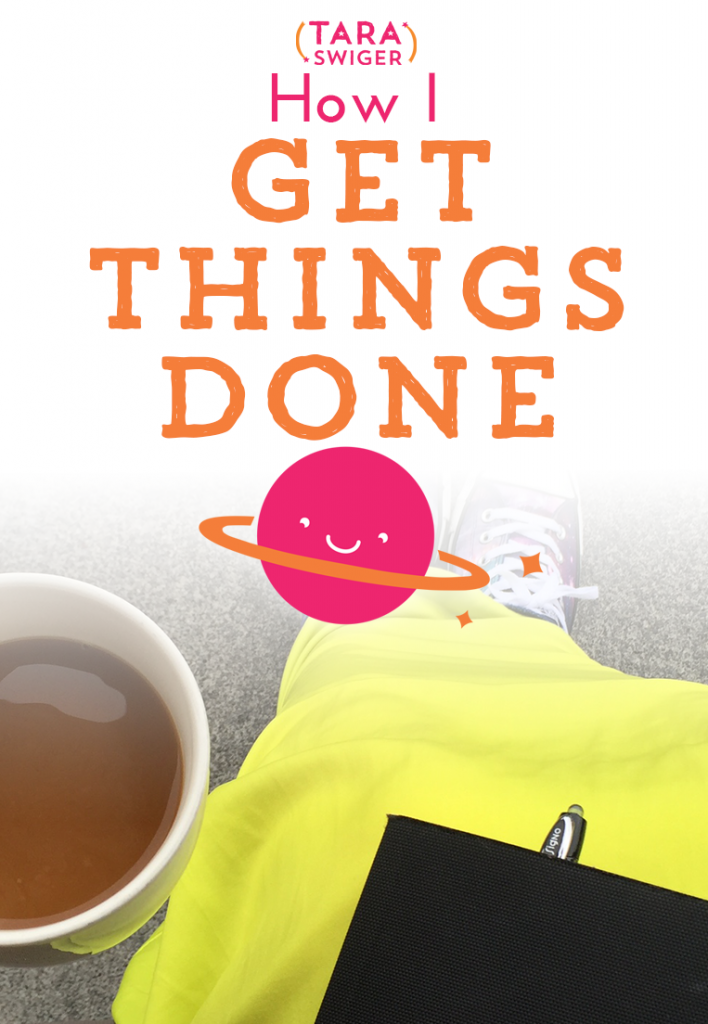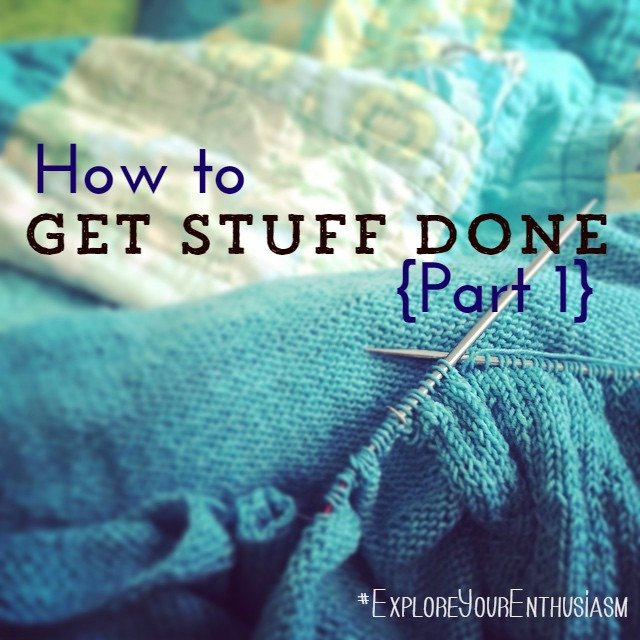Podcast: Play in new window | Download
What if you are just not getting things done? What if you just can NOT get things done? Before you start beating yourself up, ask yourself: is this just a season of my life?
Today we're going to talk about how to identify the season you're in, and what to do about, to be both as productive and GENTLE as possible.
My aim is to guide you to living an enthusiasm-filled life…which includes doing work you love, spending time with people you love, and feeling GOOD while doing it.
I was recently asked the question on Instagram: I feel like I'm in a season of my life when I can't get a lot done. Am I alone? Can you talk about this?
First, let me preface today's episode with some background: two months ago I didn't have any kids. We became foster parents last September and on December 17th a two year old girl came to live with us, for an undetermined amount of time. And let me tell you – one of the first thoughts I had about my business, when my head came above water, several weeks later was: I can't believe I ever talked about how to get stuff done. I had NO IDEA what it was like to have a 2 year old at home. It is insane. Especially when you have no warning and you're a stranger to the 2 year old, and they've gone through some recent trauma. But even if you’ve been with them from day one, it’s bonkers.
So here's the truth: I have no idea what you're going through. Maybe you have 4 kids. Maybe you have a sick partner. Maybe you just lost a parent or loved one. Every situation is different, and my situation and way of dealing with things is built from what I need, from what works for me (and sometimes it doesn't even work for me!). So you'll have to take what applies, leave what doesn’t, and find what will work for you.
In my experience, there are several different seasons in every business, that continue to cycle throughout the life of your business:
- Idea/inspiration – when you start to dream and get inspired and slurp up Pinterest and blogs and videos
- Creation/exhalation – if you inhaled a lot of inspiration, you need to let it out via creation. This is where you begin to turn your ideas into action, into real projects or relationships or products
- Working away at what you started – After the initial super-creative part of the process a LOT of our projects have kind of a boring “keep going” part. It’s not new and exciting, but there’s more to be done. This might also be maintenance mode. As Kurt Vonnegut said, ‘everybody wants to build and nobody wants to do maintenance.'
- Rest – sometimes you’ll go right from creating to new inspiration and new creation but a lot of time your field will just need to lie fallow. You may just need to rest before you get another breath of inspiration. This is the time that you may worry that you’ll never have another idea and that everything is falling apart. But it’s just part of the process. Fill up your well and keep yourself healthy during this phase.
So those are the seasons in your business, but there are also seasons in your LIFE. Seasons where you’re actually not going to be in any season of creation or inspiration because you’re putting your attention on other projects in your life. It may be parenting, or a relationship, or getting well. That’s ok. That’s part of being a human!
If you are in a season of not getting stuff in your business done, you are NOT alone. I didn't work for 4 solid weeks. And now that I am back to “work”, my working hours are a fraction of what they were. Not only that but now the part of my brain that was free to think about strategy and business plans is now thinking about temper tantrum strategies and did she have any green vegetables today and is that a rash?
Now, I could be frustrated about that, or feel hopeless about it, or freak out about it (my income is 80% of how we pay the bills…so it's kinda important.)
But this is only a season of my life. Yes, she'll only be 2 years old for a short season. And because we're doing foster care, she may only be with us for a short season. But above that, the overwhelming NEWNESS of everything is ALSO a short season. We won't be in this everything-is-new-and-requires-decision-making season forever. Even after just a month of being together, so much has become easier. We have routines, we have go-to meals, we have regular activities to do together. I'm not saying parenting every becomes EASY or that I'll ever get back the huge percentage of my brain I used to think about my business, but the season of it being THIS INTENSE is fleeting.
And let me even more honest with you – before this season of being a new mom to a toddler, I went through a season of deep depression where I could not get my normal stuff done. Everything was hard. It started with fogginess, then things got physically hard, then hopelessness, then there was just apathy. (It’s real hard to get things done when you don’t care about anything.)
Even though that season was SO hard and I never want to repeat it, it was a season of healing. I needed to learn the lessons I learned in that season. It was NOT a season of ideas, creation or working. It wasn’t that restful (although I did rest my body a lot.)
Now that I’m more mentally healthy and I’m moving out of the intense brand-new-kid season, I’m in a season of transition, where I’m trying to find my new rhythm, my new normal. As much as I would love to just hop back to work-mode when I can work, I’m finding that I need to learn how to transition from mom-mode to work-mode. So this is a season of figuring-it-out. I’m not quite to creation, as I just transition into figuring out how to work.
And I know many of you are in an especially hard season. Maybe it's depression. Maybe you're taking care of a sick family member or partner. Maybe you've recently experienced loss. These are all seasons where your work is just NOT a priority. And hey, that's ok!
We are trying to build businesses that ENHANCE our lives, that bring enthusiasm and joy and connection to our lives, so those same businesses (and our plans for our business) need to allow for that life to show up and take over sometimes.
Are you in a difficult season right now?
If you're not getting stuff done:
- Is it a season?
- Is there a timeline?
- Are your frustrated because you can’t do what you WANT to do? Keep track of your ideas.
- Stick with the routines that make you feel like yourself (ie, shower, walk the dogs, get coffee)
- Recognize the season and give yourself grace.
- Realize when you’re in the NEXT season, and allow the change to happen.
I hope this has helped you navigate whatever season you’re in!
How to listen
- You can subscribe to it on iTunes (If you do, leave a review!)
- You can listen to it using the player above or download it.
- Subscribe or listen via Stitcher (or subscribe in whatever you use for podcasts – just search “Explore Your Enthusiasm” and it should pop up!).






